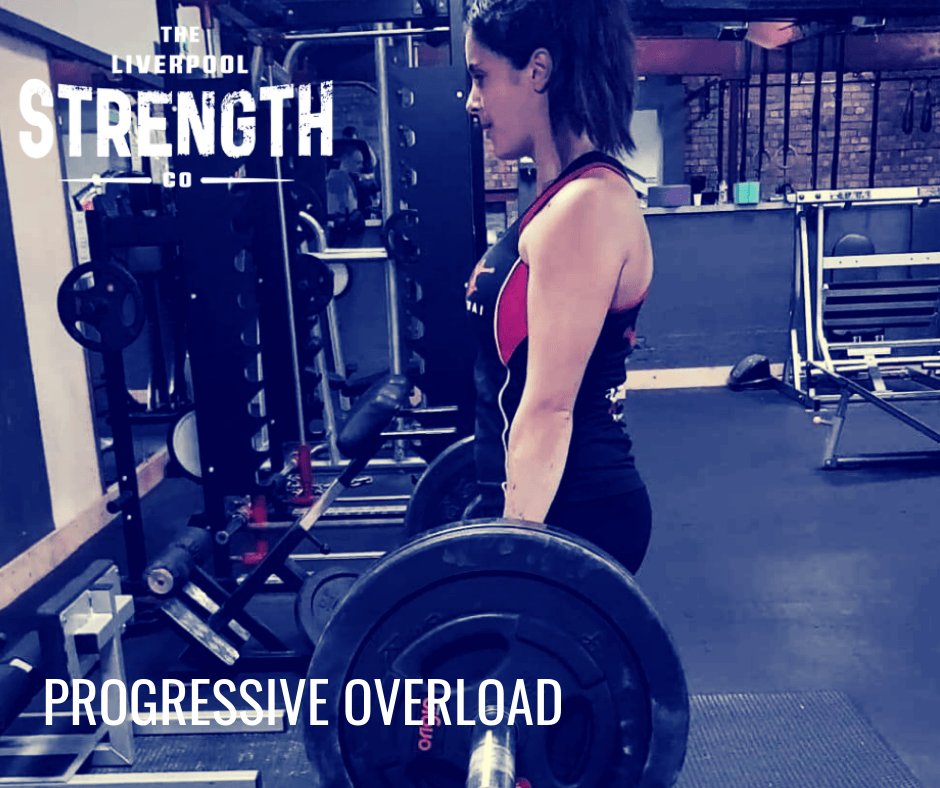
The principle of progressive overload basically states:
BACK
In order for a muscle to grow, strength to be gained, performance to increase, or for any improvement to occur, the human body must be forced to adapt to a stress that is above and beyond what it has previously experienced.
Read that again cause its pretty important.
And what it means is, if you lift the same weights, for the same number of reps, the same way for the next 20 years… nothing will ever happen. Your body will never change or improve in any way.
You will only maintain your current state.
However, if you increase the stress you are placing on your body by increasing the weight being lifted, lifting the same weight for more reps, or just doing something that increases the demands that your body needs to meet, then your body will have no other choice but be forced to adapt and make the necessary changes and improvements that will allow it to adapt to this environment and remain capable of performing these tasks.
And these “changes” and “improvements” and “adaptations” come in the form of more muscle, more strength, less fat, more tone, better performance and just the overall results you are looking to get.
That’s what all of these goals are, really… just our body’s adaptive response to the demands being placed on it through exercise.
You’re basically showing your body that in order for it to survive, in order for it to do what you are forcing it to do, it’s going to NEED to make these changes and improvements.
Let me show you exactly what I mean in the specific context of weight training.
Lets say you could squat 20 kilos for 3 sets of 8 reps.
If you continue to lift that weight for the next 20 years there will be no muscle growth or increase in strength, because there was no progressive overload.
Your body has adapted to the stress of 3 sets of 8 with 20 kilos, and has already gained enough strength and muscle to deal with this.
Because you aren’t increasing the demands being placed on your body, you aren’t giving your body ANY reason to improve any further.
And, because of that… it won’t.
You can do everything else perfectly, but if you fail to provide some form of progressive overload over time, your body will never see any reason to change.
However, if you were to lift 20 kilos for 3 sets of 9 reps (instead of 3 sets of 8 reps) on that same exercise, then a reason would finally exist.
Why? Simple. You increased the tension. You increased the demands. You increased the work your body had to do. Instead of doing the same 3 sets of 8 reps with 20 kilos, you worked to do 1 additional rep on each of those sets.
And, while it may only seem like a tiny improvement, it’s EXACTLY what you need to do in order to prove to your body that it needs to improve.
Similarly, if you were to now try to lift 25 kilos for 3 sets of 8 reps (an increase of 5 kilos)… the exact same type of reason would exist.
You’re basically telling your body: “Hey, look at this. The work you have to do has increased, so you better build some more muscle and add some more strength to compensate.”
This is progressive overload.
Whether you get just 1 more rep on just 1 set, or add 5 kilos to all of your sets… it doesn’t matter. Your goal is to somehow beat what you did previously.
And as long as you do this as often as you can and cause some form of gradual progression to take place over time, then you are giving your body a reason to continue to change and improve.
As long as that reason is present, results are guaranteed to follow.
At the same time, as soon as that reason stops (or if it never exists in the first place), then your body stops having a reason to continue to improve. No matter how perfectly you are doing everything else, no new positive changes will be made without progressive overload happening.